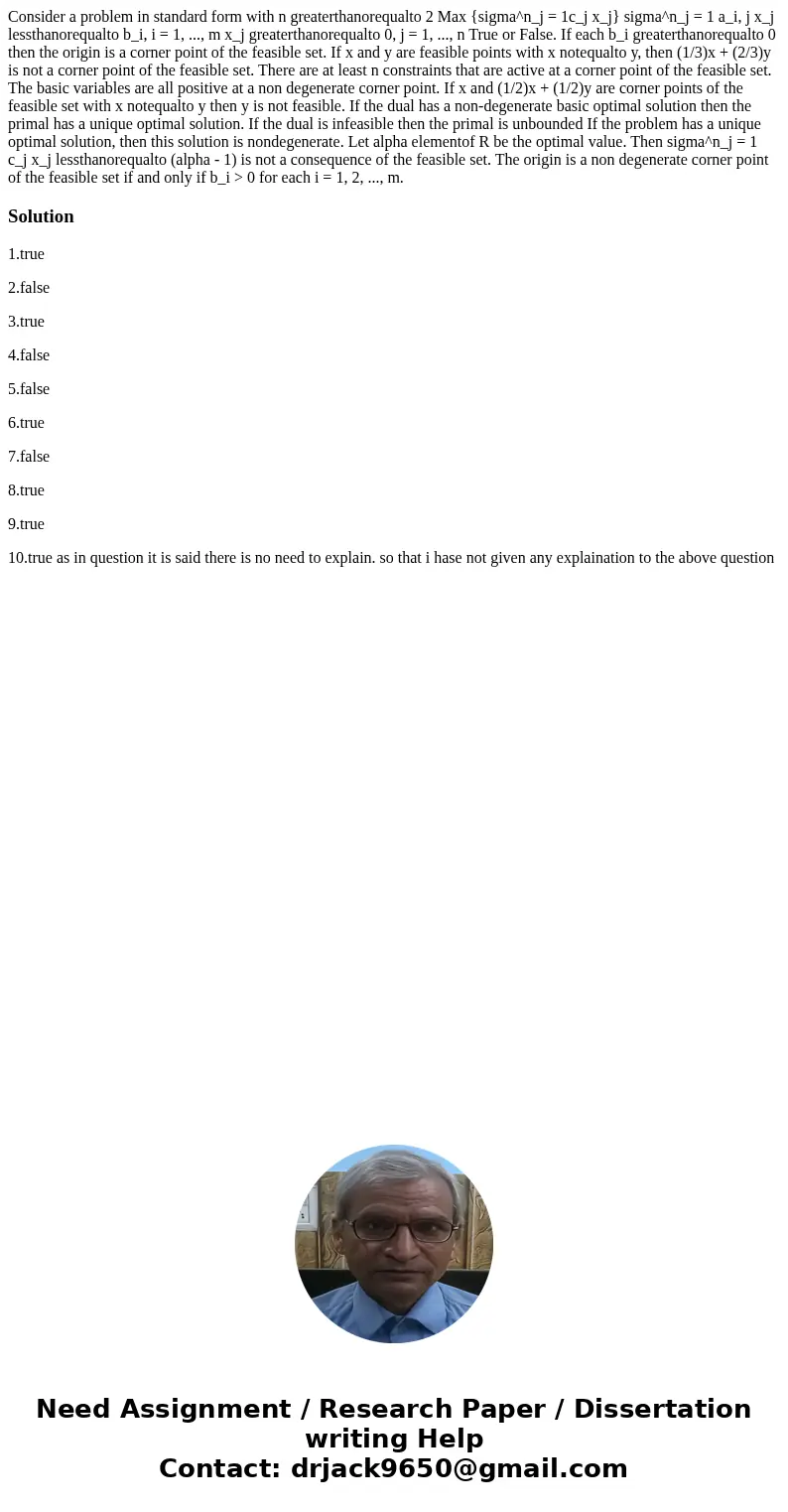Consider a problem in standard form with n greaterthanorequa
Consider a problem in standard form with n greaterthanorequalto 2 Max {sigma^n_j = 1c_j x_j} sigma^n_j = 1 a_i, j x_j lessthanorequalto b_i, i = 1, ..., m x_j greaterthanorequalto 0, j = 1, ..., n True or False. If each b_i greaterthanorequalto 0 then the origin is a corner point of the feasible set. If x and y are feasible points with x notequalto y, then (1/3)x + (2/3)y is not a corner point of the feasible set. There are at least n constraints that are active at a corner point of the feasible set. The basic variables are all positive at a non degenerate corner point. If x and (1/2)x + (1/2)y are corner points of the feasible set with x notequalto y then y is not feasible. If the dual has a non-degenerate basic optimal solution then the primal has a unique optimal solution. If the dual is infeasible then the primal is unbounded If the problem has a unique optimal solution, then this solution is nondegenerate. Let alpha elementof R be the optimal value. Then sigma^n_j = 1 c_j x_j lessthanorequalto (alpha - 1) is not a consequence of the feasible set. The origin is a non degenerate corner point of the feasible set if and only if b_i > 0 for each i = 1, 2, ..., m.
Solution
1.true
2.false
3.true
4.false
5.false
6.true
7.false
8.true
9.true
10.true as in question it is said there is no need to explain. so that i hase not given any explaination to the above question

 Homework Sourse
Homework Sourse